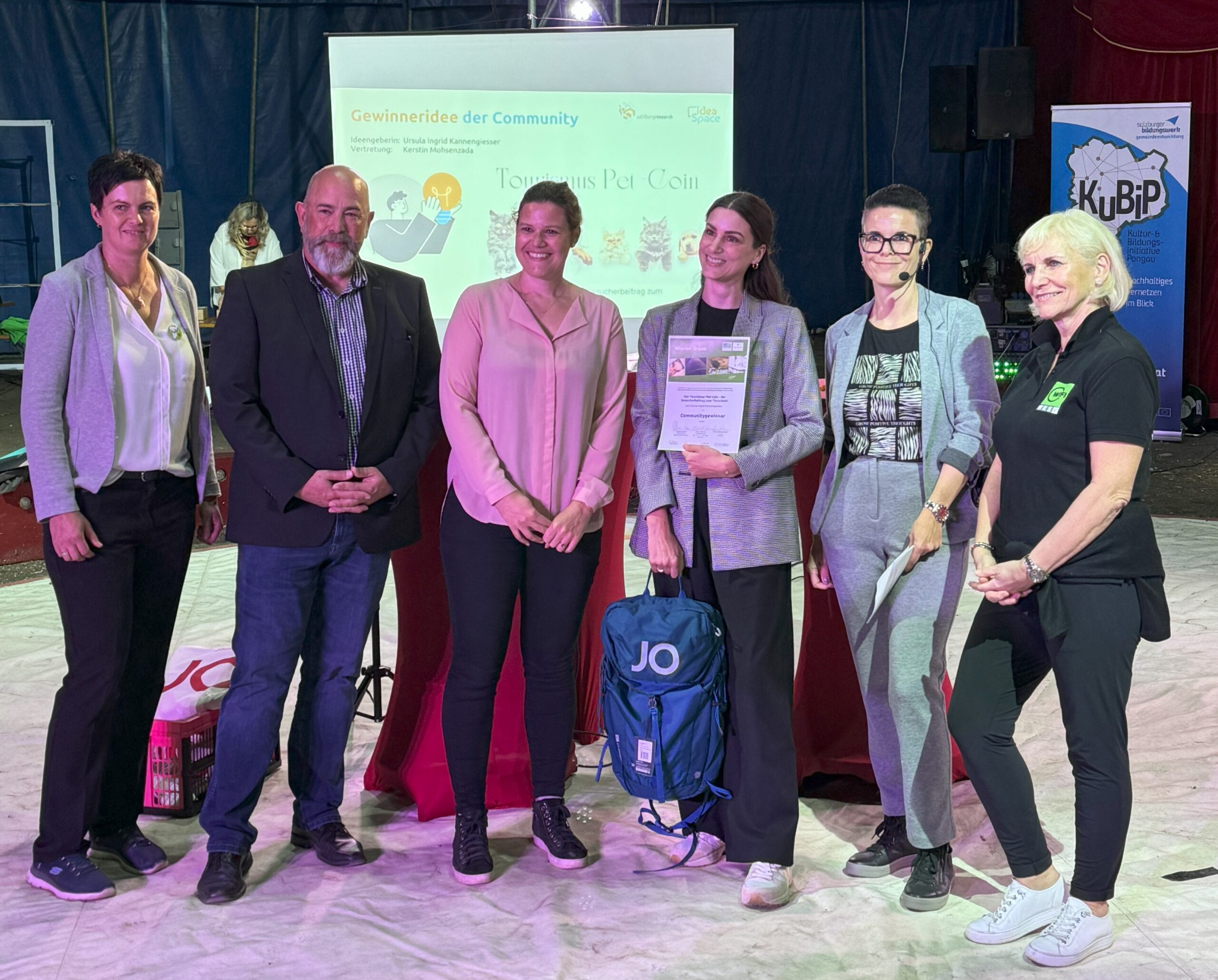CiMo Partner: Salzburg Research Forschungsgesellschaft mbH
Challenge
The Pongau Regional Association and LAG Lebens.Wert Pongau-Tennengau strive to take a pioneering role in the tourism industry and promote smart resource (re)use. Pongau, a region of picturesque beauty and a popular travel destination, wants to maintain its attractiveness for visitors while promoting sustainable practices by involving regional stakeholders (e.g. accommodation and catering establishments, event organizers, farmers, etc.). It is a well-known fact that large quantities of food are thrown away every day even though they are still edible. Likewise, textiles that are no longer used in hotels and guest houses all too often end up in the trash. This contributes significantly to the amount of waste and represents a waste of valuable resources.
The “Mission Green” idea campaign was looking for feasible ideas on how resources in tourism can be used sensibly or reused with the support of digital technologies and which measures for (awareness) education bring the responsible use of resources closer to people.
Methods
The above challenges were addressed with the EDIH-CIMO Service “training in crowd technology and support in launching an open idea crowdsourcing campaign”. The idea campaign on IdeaSpace pursued several goals. Firstly, this approach aimed to generate a wide range of feasible innovative ideas for sustainable digital solutions for the (re)use of resources in the areas of food, textiles, energy, mobility, and others in the tourism sector. The best ideas should be implemented in the region. Another goal was to raise public awareness and sensitivity to the issue of waste and responsible use of resources and to create a common understanding of the importance of sustainable practices in tourism.Thirdly, the campaign should foster the cooperation of stakeholders in the region and support the development of a resilient interested network. The areas to which ideas could be submitted were:
- Food as a resource
- Textiles as a resource
- (Awareness) education
- Other resources (e.g. mobility, energy)
The contest was promoted on different digital communication channels, several best practice examples from other branches and regions were featured. The target groups were local communities, locals, tourists, companies, and research institutions, as well as the growing IdeaSpace community of over 2000 members.
Out of 49 innovative submissions seven ideas have been selected by an interdisciplinary 11-headed expert jury in a digital evaluation process comprising three rounds. The winning concepts, selected by the expert jury, and the community-voted favorite, “Tourismus Pet Coin” (Ursula K.) were honored at an awar ceremony in the framework of the regional education mess on September 26, 2024, in Bischofshofen.To develop concrete next steps, an innovation workshop was conducted in the framework of the “Smart Tourism Data Jam” in Salzburg on November 9 which led to a handbook for the clients. The clients work on the implementation of the two top winning ideas now.

Result, Impact
Raising the level of digital maturity of the clients (Pongau, LAG):
Digital capacities of the clients increased, because the OI campaign was successfully set up and conducted on the digital platform “IdeaSpace”. Instead of using hands-on internal methods to pursue ideation, this has been done now with crowdsourcing technology. The interactions, discussions and idea phase were fully digital, which made the entire process more efficient, scalable and transparent.
Raising the degree of innovative ideas:
Idea crowdsourcing on the “IdeaSpace” raises the level of innovation by involving various interest groups, such as the local population, tourist organisations or tourists. The digital platform enables broad participation and the exchange of ideas from a variety of perspectives. The specific question of integrating digital elements to support the (re)use of resources demonstrates the innovative focus. In the end, the clients were very satisfied with the 49 well elaborated submissions and can draw from this innovative pool now wo work on their mission.
Expert network:
By inviting various experts on the topics and representatives of important stakeholders to the jury, a regional expert network was built up. Jury members can be easily approached for future projects as they have already showed their interest in supporting.
Handbook for implementation of winning solutions:
The results of the innovation workshop on November 9 (mentioned above) were captured in a handbook for the clients. Concrete next steps to implement the winning solutions in the region have been developed with over 25 participants. The clients are working on the implementation of the top ideas now.